Our award winners epitomise the best of business practice
But celebrating the best of what they do has its place. It’s a way of recognising stellar achievements and inspiring others to follow suit. That was the driving motivation behind Ethical Corporation’s Fifth Annual Responsibility Business Awards, which saw nearly 200 of the industry’s leading experts convene in London’s Mayfair on 29 September.
Partnership
The term “partnership” now occupies a central position in the lexicon of sustainable business. All honest companies admit that they alone cannot solve the big social and environmental issues of the day. Only through partnership do they stand a chance.
The Net-Works social business initiative, which was singled out for the Best Business/NGO Partnership, crystallises what a successful cross-sector partnership approach looks like. The alliance promotes the recycling of discarded fishing nets in low-income coastal communities in the Philippines.
Best Business/NGO Partnership: Net-Works (Interface and the Zoological Society of London)
The genius of Net-Works, this year’s winner of the Best Business/NGO partnership, is that it gives local fishing communities in the Philippines a sustainable alternative to two intractable problems: poverty and the environment damage that comes with it.
Without recycling facilities, local fishermen typically discard their old nets on the beach or in the sea. These non-biodegradable nets pose a threat to marine life for decades. Carpet manufacturer Interface and environmental non-profit group Zoological Society of London (ZSL) have combined to design a solution based on a for-profit recycling initiative. Launched in January 2013, Net-Works pays villagers to collect old nets, which are then sold directly to Interface’s nylon supplier. The nets are reformulated and used for manufacturing Interface’s carpets.
The initiative has already led to the collection of more than 25 tonnes of waste nets. Participating villages, meanwhile, are each able to put an extra 4,800 extra meals on the table thanks to the income they have received.

Nigel Stansfield, chief innovations officer at Interface, says the initiative achieves all three basic elements of sustainability: economic, environmental and social/ethical. “You can’t do that in isolation,” he says. “You need to develop strong, collaborative relationships. In our case, we did that through our supply chain and we did it with a very strong partner.”
Heather Koldewey, head of the global conservation programme at ZSL, echoes Stansfield’s sentiments. “Interface has enabled us to design a sustainable business model and given us access to a global supply chain. That’s really liberated some of these communities and allowed us to set a new frame for conservation,” she says.
The partnership meets the desire of Interface, a “closed-loop” carpet manufacturer and the project’s corporate sponsor, to identify recyclable nylon that can be reused in its production processes back in Europe. The Zoological Society of London (ZSL), meanwhile, a conservation non-profit that forms the other half of the partnership, has found a solution to marine pollution caused by waste nets. “We’re a big believer in collaborative innovation. None of us are smarter than all of us,” says Nigel Stansfield, chief innovations officer at Interface.
Net-Works is also testimony to the fact that the best partnerships are often the least expected. ZSL works to protect endangered animals and their habitats. Interface makes carpets. Yet working together has helped both organisations find “new ways of doing things”, says Heather Koldewey, head of the global conservation programme at ZSL. It’s not about philanthropy, she insists: “It’s about combining skills and heads to come up with something that is truly innovative and something that we couldn’t do separately.”
Similar fresh thinking characterizes “Banking on Change”, a partnership between Barclays and the development charities Care and Plan UK. The judges highly commended the initiative for adopting a credit-led approach to the problem of financial exclusion, which affects 2.5 billion people worldwide. Banking on Change establishes savings and loans groups that save and lend to one another. More than 25,000 such groups have been set up in 11 countries since the partnership kicked off in 2009.
An acknowledgement of mutual dependence and the promise of mutual benefit are other factors behind a successful partnership. These qualities can be seen in abundance in a collaboration between Diageo’s liqueur brand Baileys and milk producer Glanbia Ingredients Ireland Limited (GIIL). Selected for the Best B2B Partnership, the two companies have combined forces to push sustainability through the entire Baileys supply chain – from the first gallon of fresh milk to the final product.
GIIL, which is the sole supplier of cream to Baileys, recently introduced a sustainability and quality assurance programme. The initiative will see all its 4,500 farmer suppliers audited to ensure they comply with environmental benchmarks. The move forms part of the ongoing introduction of best practice guidelines throughout the sector.
“For Diageo, it is important that our business partners share our values with respect to sustainability, responsible sourcing and ethical business practices”, says Luis Rangel, global head of commodities and raw materials for the global drinks company. “Glanbia has been an outstanding example for everything this award represents.”
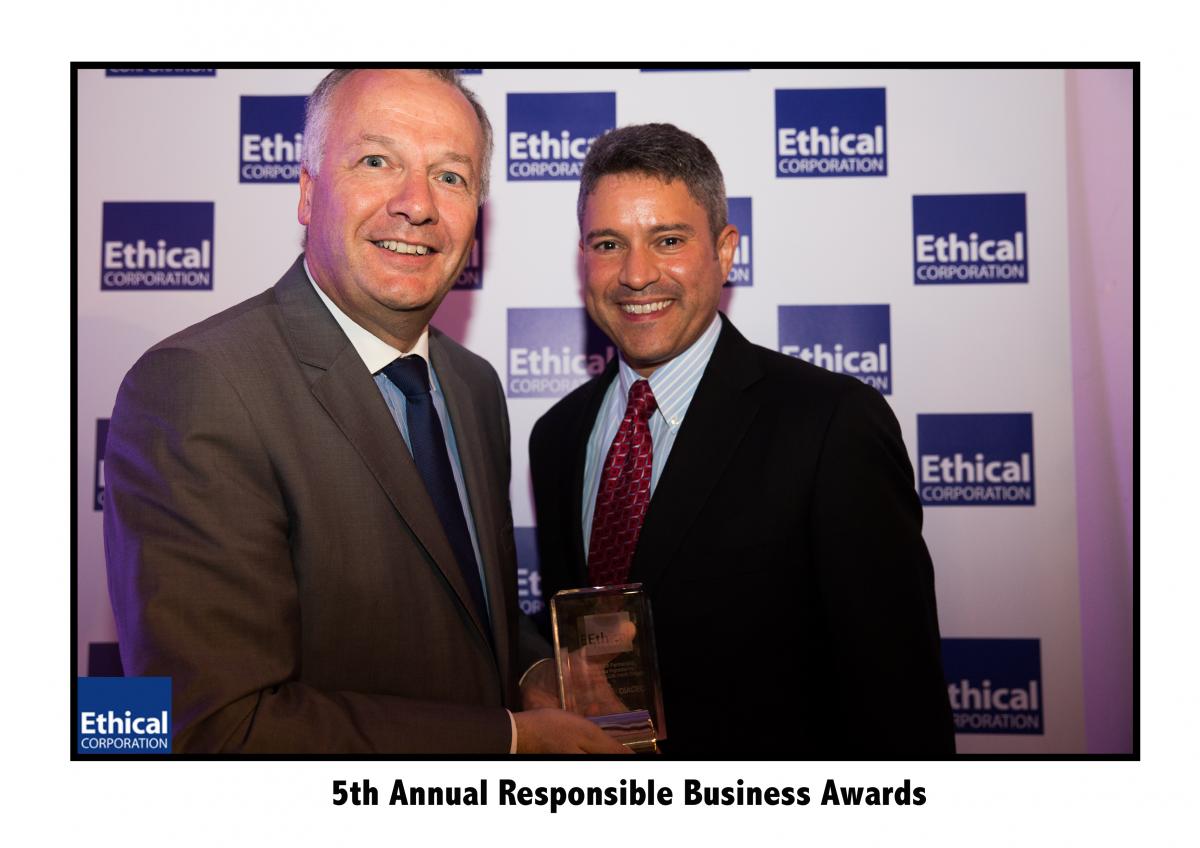
Selected as Highly Commended in the B2B category, meanwhile, was Mars Incorporated. The US confectionary firm was picked out for the 200MW Mesquite Creek Wind Farm, which will comprise 118 individual wind turbines and will boast an annual output of 800,000 megawatt hours. Mars is jointly underwriting the colossal renewable project with Sumitomo Corporation of Americas and BNB Renewable Energy.
Relevance and results mark out quality partnerships, too. And these duly account for the final two awards in this category. First, the award for Most Effective International Community Investment went to mobile phone operator VimpelCom for a long-running project by its Pakistani brand Mobilink aimed at promoting female literacy in rural parts of the country. Run in association with children’s charity Unicef, the initiative provides teachers with a basic literacy curriculum via text messages. Early evidence shows that the literacy skills among young female participants – who number around 5,000 – have more than doubled as a consequence of their involvement.
“As well as the impacts on literacy itself, it’s also allowing for a breaking down of cultural barriers to women using mobile phones,” says Chris Burgess, head of corporate responsibility at VimpelCom. There’s a “reinforcing” business rationale behind the company’s involvement too, he adds. “Illiteracy levels among women in some parts of Pakistan are around 90%, so that’s an awful lot of people who can’t use our services.
Support for vulnerable women also featured in a project in Assam, India, run by tea brand Twinings. In this case, the company worked closely with local and regional government agencies to provide more than 6,000 girls on 15 tea estates with folic acid tablets (among other health interventions) to combat rampant levels of anaemia.
Interestingly, gender and mobile connectivity won the eye of the judges for the Most Effective Domestic Community Investment award too. The cellphone operator Turkcell has used its mobile technology to set up what’s thought to be the world’s first crowd-sourced microfinance project. Money raised through the company’s Women Empowerment in Economy initiative has been used to support 68,000 low-income women so far. As with other prize-winning examples, the initiative marks a collaborative effort between multiple institutions – in this case, Turkey’s Ministry of Family and Social Policies and the Grameen Trust, among others.
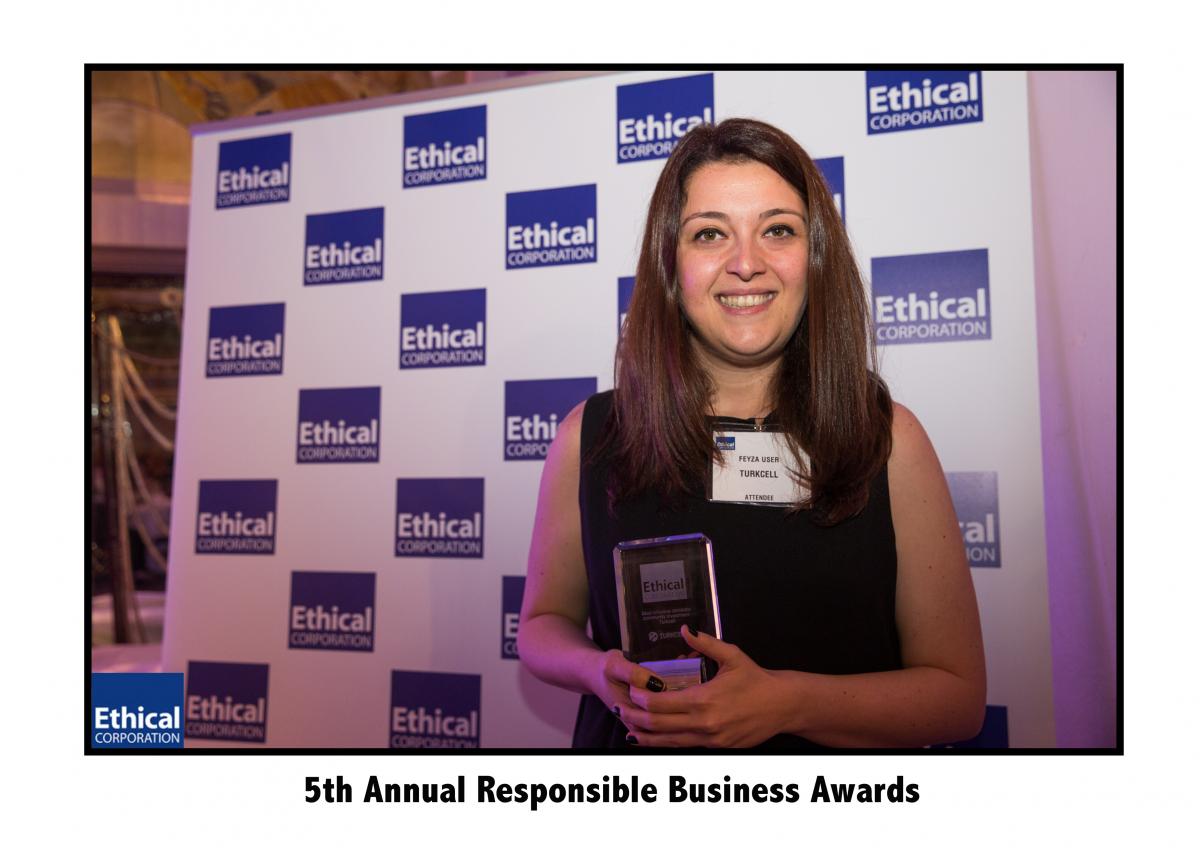
Another Turkish telecoms firm – TTNET – was highly commended. The company’s Internet4All programme aims to bridge the so-called “digital divide” in Turkey by providing under-developed communities with internet literacy training as well as low-cost internet access.
Engagement
If collaboration is essential to truly sustainable solutions, then engagement is its critical precursor. Those involved in sustainability see the necessity of responsible stewardship of the planet’s resources. But it can’t be assumed that everyone “gets it”.
For all companies, engaging their staff marks an imperative first step. Without employees on board, a business is left with a well-meaning sustainability strategies and zero action. US green household products firm Seventh Generation has a worldwide reputation for being a values-based business. With an intensive induction programme, regular discussions with the chief executive and ongoing training on sustainability issues, employees are clear doubt about the subject’s importance. To avoid any doubt, 20% of employees’ bonuses are tied to the completion of four self-selected sustainability goals.
Yet pipping Seventh Generation (Highly Commended) to the post in this year’s Best Employee Engagement category was Itaú Unibanco. The Brazilian bank won special commendation for an innovative financial education programme that it runs for its staff. As a result, the number of employees that now have savings accounts and pension plans has increased by 56% and 37%, respectively.
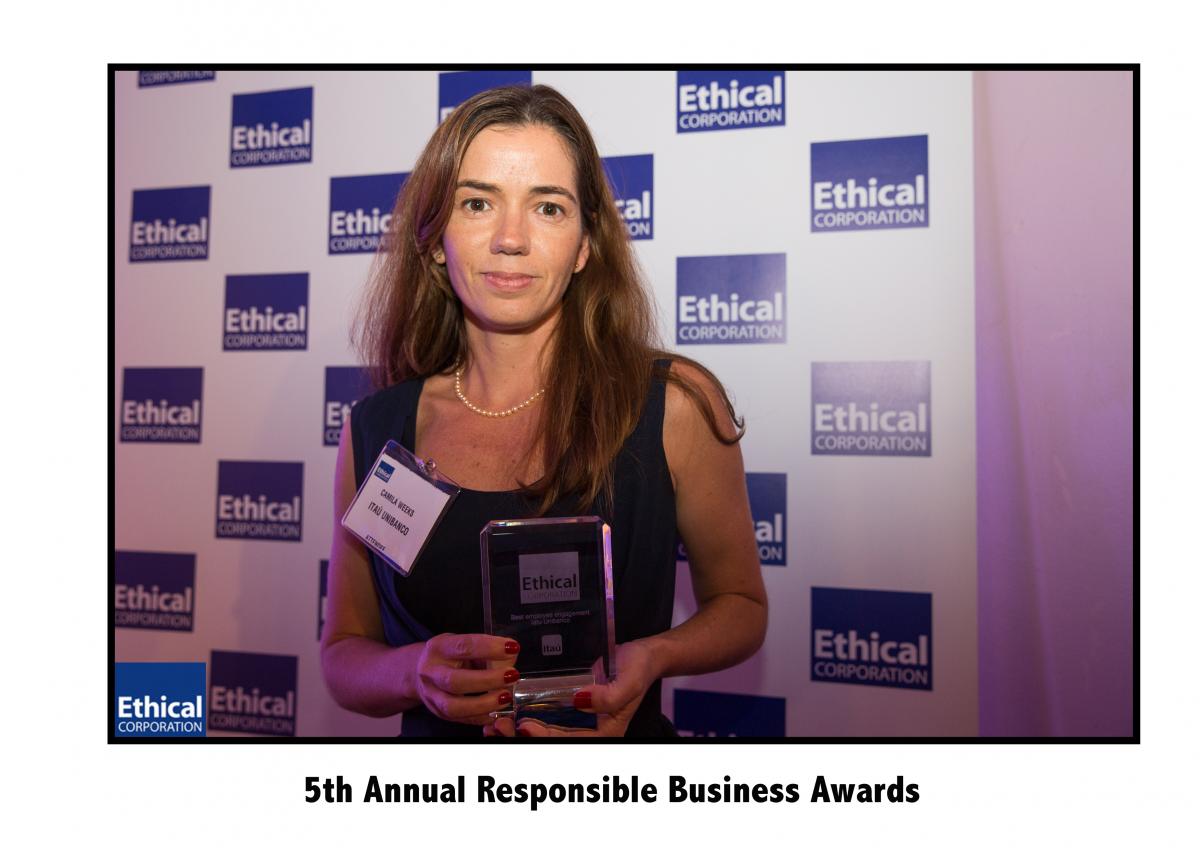
Not only are the personal finances of 80,000 staff members more stable. Their advice to the bank’s customers shows improvements too. As Jorge Paulo Rodrigues da Silva, a general commercial manager in one of the bank’s branches, explains: “Now, when we present the theme [of financial responsibility] to our clients, they begin taking a significantly different view of our bank – a view of a relationship that is more consistent, sensible, sustainable and, above all, profitable.”
Engaging key audiences outside, as well as inside, the business is crucial as well. Interested parties, from NGOs to investors, want to know how companies are responding to sustainability risks and issues. One important vehicle for achieving such communication is annual reports. Beating off tough competition from the likes of Merck, H&M (Highly Commended), Legal and General and GE for Best Sustainability Report was Maersk.
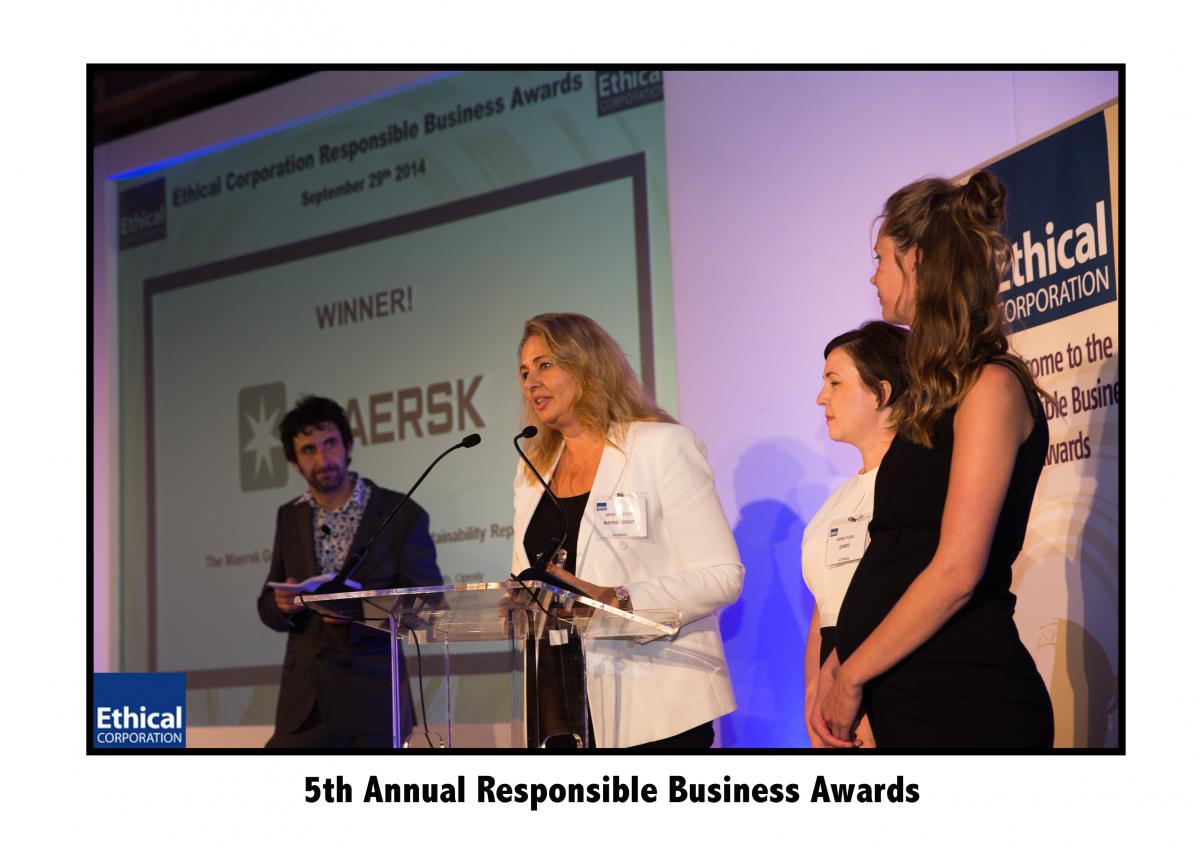
The Danish shipping group was praised for a “very clear, honest” report. Not only did Maersk highlight its achievements, but – and this is all-important for external credibility and engagement – it was upfront about the challenges it faces too. Among the “difficult issues” tackled in the report are the challenges around facilitation payments in the shipping industry, shipping accidents, long working hours in China and poor supplier performance on human rights.
“Our story, societal context and wider purpose is told consistently from year to year, and every year we are able to add more data and facts to our societal impacts through our impact studies,” said Louise Kjaergaard, group lead for sustainability communication at Maersk.
Along with consistency, clarity is another key attribute of effective communication. And it was this quality that drew the judges to Nestlé’s Supplier Code, which won the Swiss food giant the Best Supplier Engagement award. The Code sets out non-negotiable minimum standards for the company’s suppliers, right down to the individual farm level. It’s not about applying a big stick, though. Nestlé provides guidelines and advice to help its suppliers make their business practices more sustainable. Already, 74% of its supply base is fully compliant. As a result of its supplier engagement efforts, Nestlé can now trace 28% of the volumes of its 12 key commodities back to source.
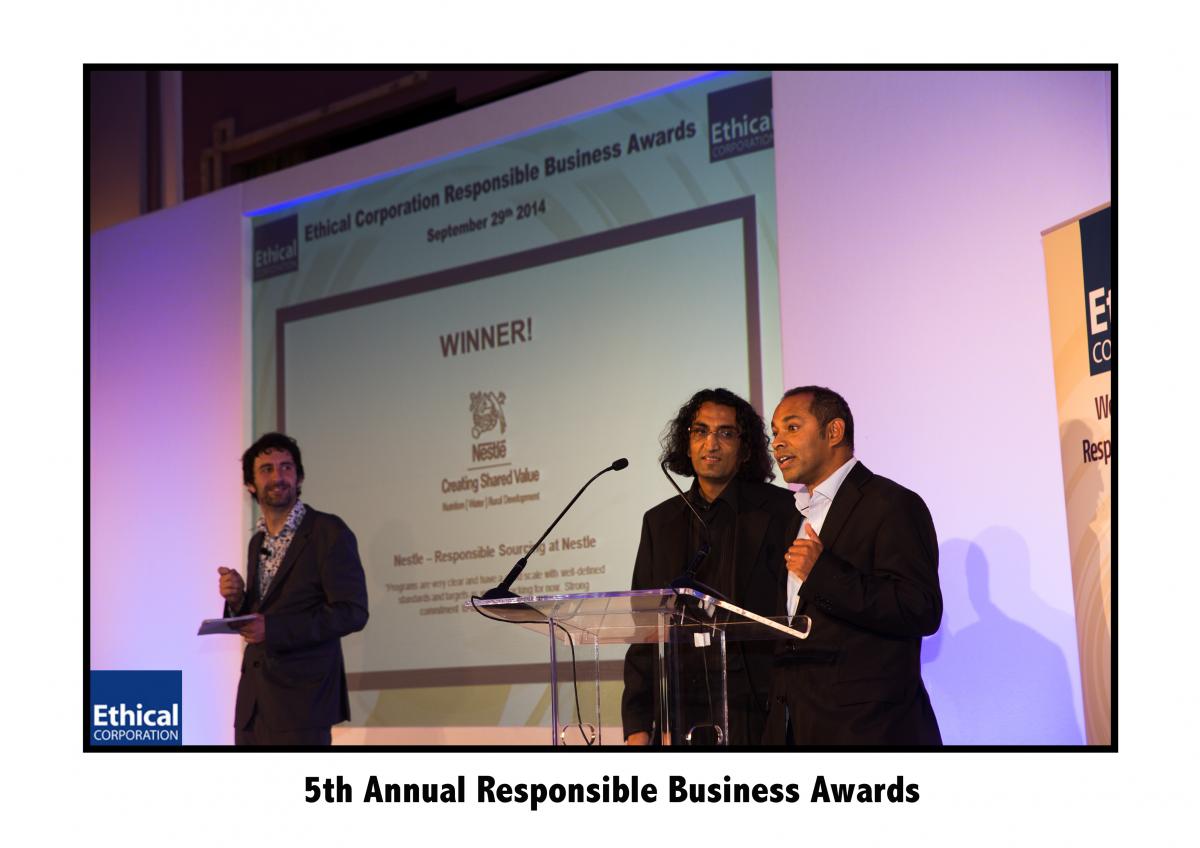
High Commended, meanwhile, was Woolworths. As with Nestlé, the South African retailer asks its fresh produce and horticulture suppliers to meet core environmental standards. As part of its Farming for the Future initiative, all of these suppliers are independently audited. What’s rare about the programme is that Woolworths foots the bill for these initial audits, not the supplier. The retailer plans to engage its beef and dairy suppliers similarly in the near future.
Consumers are arguably one of the hardest groups to engage. Beyond the hard core of “eco shoppers”, who actively look for sustainable products and services, most don’t take much note. So how can you raise consumers’ awareness and nudge them to buy – and act – more sustainably?
One impressive effort comes from B&Q, which was highly commended in the Best Consumer Engagement Campaign category. The retailer’s three-month Great British Bee Count campaign caught the judges’ attention for its grassroots nature and its clear consumer focus. Run in partnership with Friends of the Earth, the campaign invited members of the public to download a dedicated smartphone app and to share bee sightings via social media. Within a week of its launch in June 2014, the app had almost 20,000 registered users and almost half a million bees were logged.
Another move that caused big ripples among consumers was the decision by US pharmacy chain CVS Caremark to stop selling tobacco products in its 7,600 stores. The bold move, which won a special mention from the judges, garnered 350,000 “likes” on Facebook and 218m print and broadcast media impressions. In addition, one in four consumers surveyed said they were more likely to shop at CVS Caremark as a result.
The top prize in the consumer engagement category went to another stellar performer: Santander Brasil. The Brazilian bank – the second to be singled out at this year’s awards – was picked out for its Reduza e Compense CO2 programme. The scheme provides a pioneering bargaining platform that sets out to break the dominance of institutional investors in the carbon market and open it up to individuals or enterprises. Anyone can log on to the web-based initiative, calculate their carbon footprint and then acquire the corresponding carbon credits on the voluntary market for projects.
Crucial in the success of the programme was Santander Brasil’s ability to win over people to the idea of carbon offsetting, which it did through instructive and light-hearted videos. To show it was serious, the bank also undertook to offset the first 1,000km of each vehicle in the company’s fleet. Santander Brasil also hosts an app on its corporate Facebook page (which has over 1 million followers), which shows the amount of carbon that users have emitted by browsing on the social media site.
“This achievement reinforces the pioneering nature of our initiative, which aims to develop the carbon market, especially among those who are distant from discussions about the subject, such as members of the public and small and medium-sized companies,” said Marcos Madureira, vice president of sustainability at the bank, on receiving the award.
Companies want consumers to take action to promote sustainability. And that action could be voting with their wallets. Turning sustainable principles into a viable market offering is no easy task, however, which is why PureCircle’s promotion of stevia-based sweeteners is so impressive, and why the Malaysian firm won the Sustainability Commercialised award. The zero-calorie sweetener, which represents an entire new category, is proven to have an 85% smaller carbon footprint than natural caloric sweeteners such as sugar cane and beet sugar. Its water footprint is even better, comprising a mere 5% that of the average sweetener on the market.
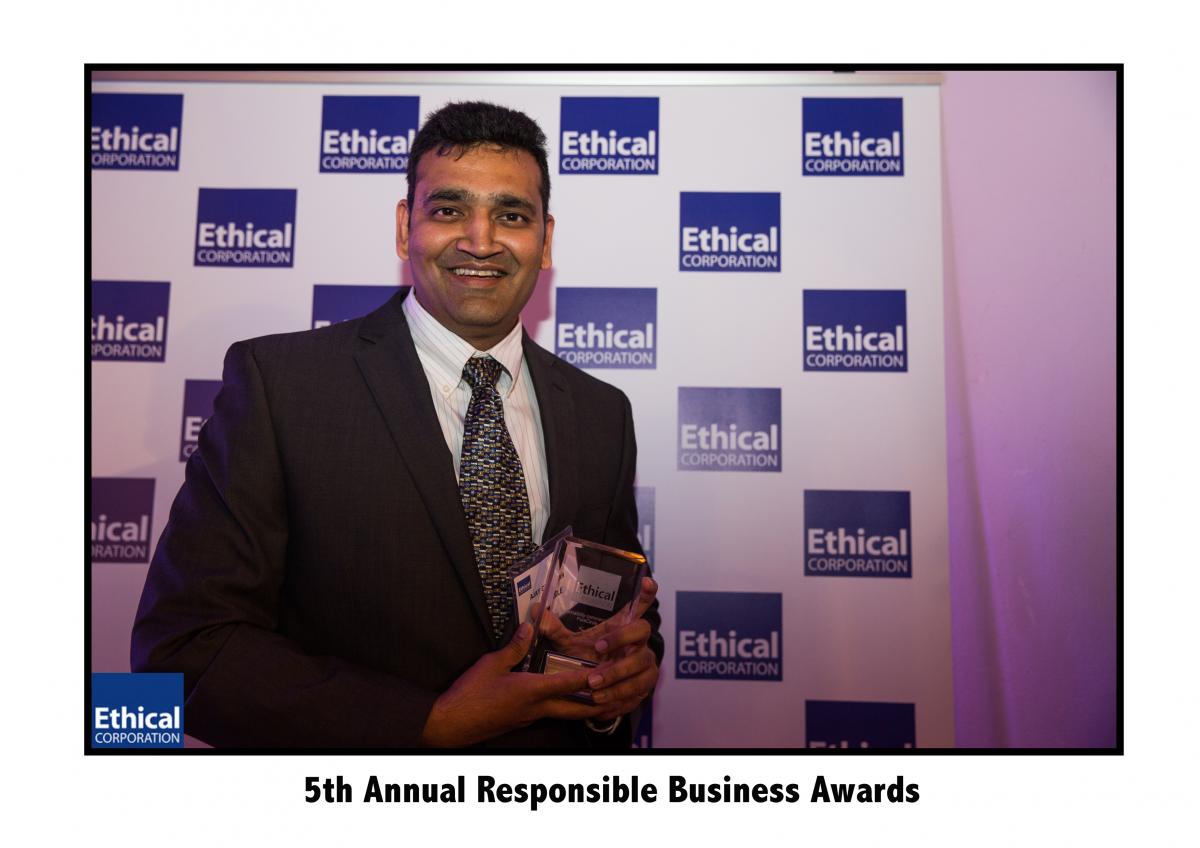
Selected as Highly Commended once again was B&Q for its easyGrow product, an innovative “teabag” technology used to package bedding plants. B&Q sells about 140m such plants a year. Historically they would be packaged in non-recyclable polystyrene trays. The retailer’s new solution uses a renewable material based on corn starch. The pots are filled with coir, meanwhile, a sustainable alternative to peat. Launched in April 2014, EasyGrow drove an additional £1m in sales within the first six months.
Leadership
The above examples all point to individual excellence: companies doing one thing exceptionally well. But if the cause of sustainability is to make a real indent on the world’s most pressing problems, it takes coordinated effort across multiple fields. That is only possible with genuine, integral leadership from the top of an organisation.
Mars Incorporated is one of those. The US confectioner took the award for Best Private Company for an unprecedented second year running. Last year Mars was praised for its work on tackling child labour in the cocoa industry in West Africa, and this year the judges highlighted its development of a new deforestation policy and its underwriting of the new 200MW wind farm in Texas (as cited above).
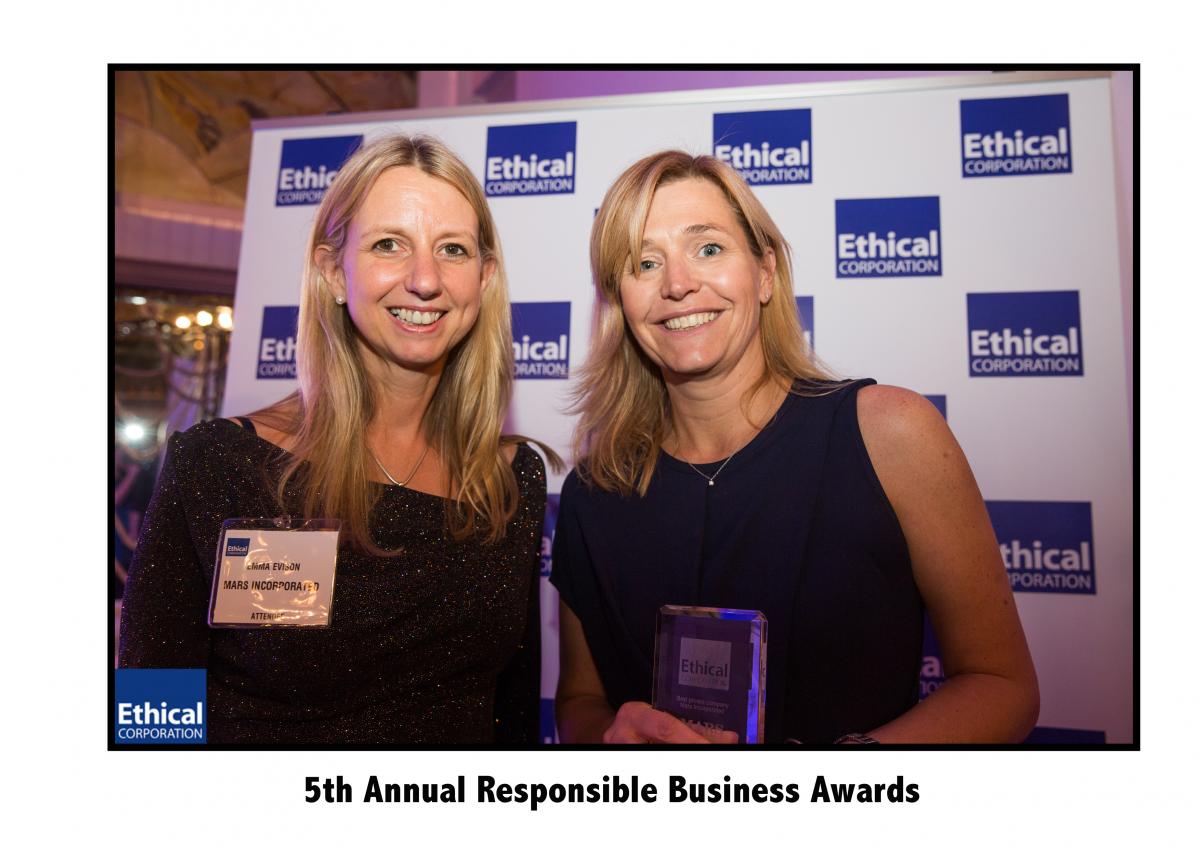
“The benefit for MARS in being a private company is the ability to take the long-term perspective,” said Kristen Kinkella, corporate affairs director for Mars UK. “We look at sustainability, like many other companies, as key to our future success and leaving the world better than when we found it.”
Highly Commended in this category is Roshan, the largest telecoms provider in Afghanistan. The Aga Khan Fund for Economic Development holds a controlling 51% stake in the firm, ensuring that social and economic development are hard wired into the company’s business model. The judges praised its positive contribution to society in Afghanistan “against all the odds”.
MBA Polymers, meanwhile, walked away with the award for Best SME (small or medium-sized enterprise). Less than one tenth of the 280m tonnes of plastic produced annually are recycled. This small Worksop-based firm, which began life in a Californian garage more than 20 years ago, is leading the way in developing high-quality post-consumer recycled plastics. The company’s clients include HP, Nespresso and Electrolux.
Scotland-based Elan Hair Design was Highly Commended for its eco-friendly practices, which stretch to sending its clients’ shorn locks for composting, while the Mad Monkey Hostel in Cambodia won special mention for its commitment to social responsibility.
Behind every great company is a great leader. B&Q’s appearance in several of the category shortlists made Matt Sexton, the driving force behind the company’s One Planet Home programme, a worthy winner of the Head of Sustainability of the Year award.
Head of Sustainability of the Year: Matt Sexton, B&Q
The energy and inspiration that Matt Sexton has given to B&Q’s One Planet Home programme over the past six years earned him this year’s coveted Head of Sustainability of the Year award.
The accolade is richly deserved. Under Sexton’s leadership, the iconic DIY brand has reduced its carbon footprint by 30% (saving the retailer more than £66m in the process), diverted 90% of waste from landfill and reduced paint solvents by more than 60%.
Sexton is quick to give credit to his fellow employees. Not a fan of “centralized objectives”, he prefers to think of One Planet Home – the name B&Q gives to its company-wide sustainability programme – as more of a movement. “We have advocates in most departments across the business. I like to think of them as a group of people who all share a similar goal.”
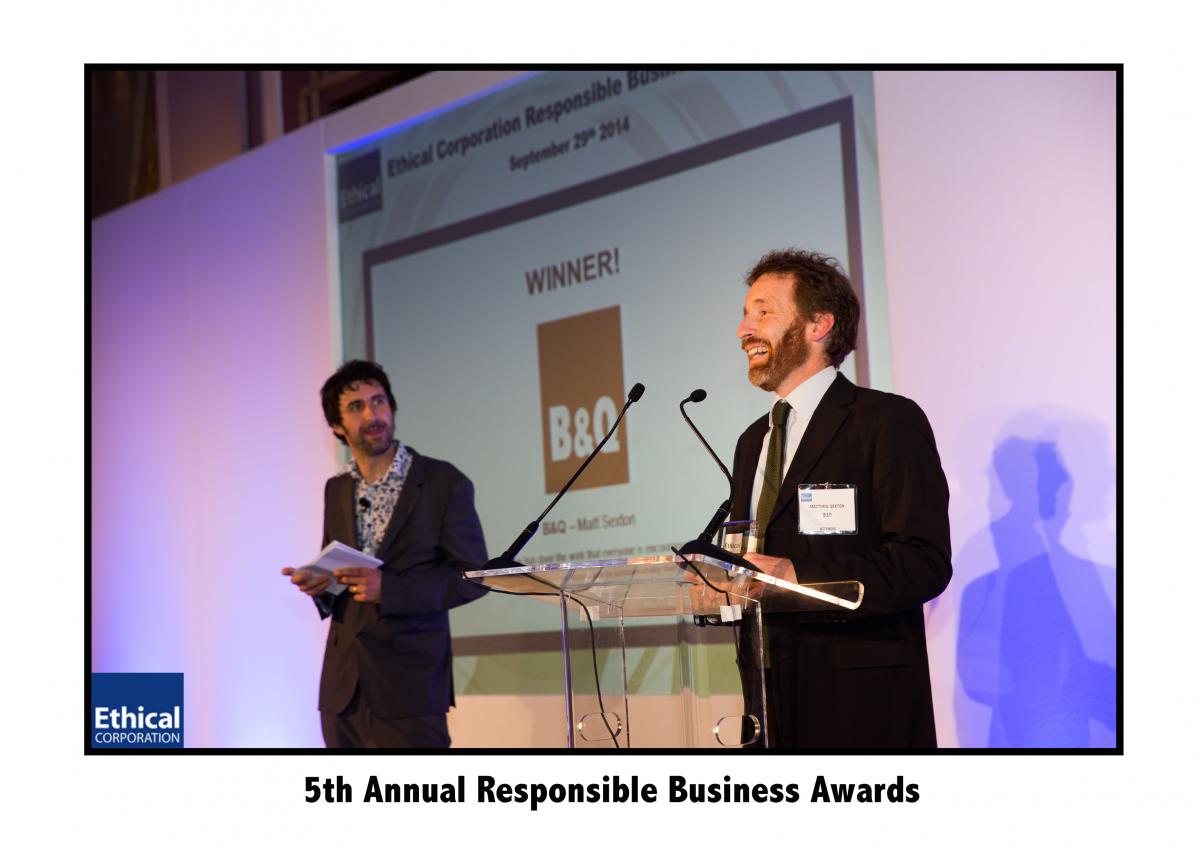
His achievements speak of an ability to get employees on board. One way of doing that is never to miss an opportunity to communicate. At Sexton’s insistence, the One Planet Home logo was woven onto 30,000 new uniforms. Every new recruit also gets trained in B&Q’s sustainability practices as part of their induction. “Whether it’s the internal television system or a company newspaper, we’ll get our message in there,” he says. “And we’re very consistent. So we say, ‘This is One Planet. This is what we do.’”
Another secret to his success is to let the experts get on with what they are expert at. “So, yes, we have an emission goal around haulage, but I know absolutely nothing about trucks,” he admits. Yet within B&Q’s 30,000 workforce, there are all the specialists you could want. “If we can inspire them and get them on board, then they become real champions.”
Accepting the accolade, Sexton was quick to credit his colleagues. “There’s an enormous amount of goodwill” among B&Q’s employees, he said. A personal mission to reduce the level of toxic chemical in paints drew him from a career as a buyer into sustainability. He summarises his job succinctly: “taking all the things that people are doing at B&Q and trying to get them to do it in a slightly different, more responsible way”.
As for the prestigious CEO of the Year, the award for 2014 went to Rana Kapoor at Yes Bank. Under Kapoor’s leadership, Yes Bank has emerged as India’s fourth largest private sector bank. But it’s done so while retaining a clear social mission. Among other measures, Yes Bank’s CEO has instituted Responsible Banking as a strategic unit with the bank. Kapoor has also appointed Chief Sustainability Officer and Chief Innovation Officer roles, rarities in India’s finance sector. The effectiveness of such moves is evident in Yes Bank’s portfolio of services for the millions who are unbanked or under-banked in India.
Kapoor is a firm believer that a “business-like approach” to development will provide a “secure and realistic solution” to India's sustainable growth. His message to his fellow corporate leaders is equally clear: “Integrating CSR principles within the core business operations is critical for business sustenance.”
One outstanding leader whose career is truly inspiring – from her time as president of Ireland through to her recent nomination as UN special envoy for climate change – is Mary Robinson. As the judges put it, this year’s Lifetime Achievement award winner has “embodied the entire spectrum of sustainability”.
Behind every accolade won at the 5th Annual Responsible Business Awards lies a story of real innovation, genuine commitment and meaningful action. Long may such efforts continue.
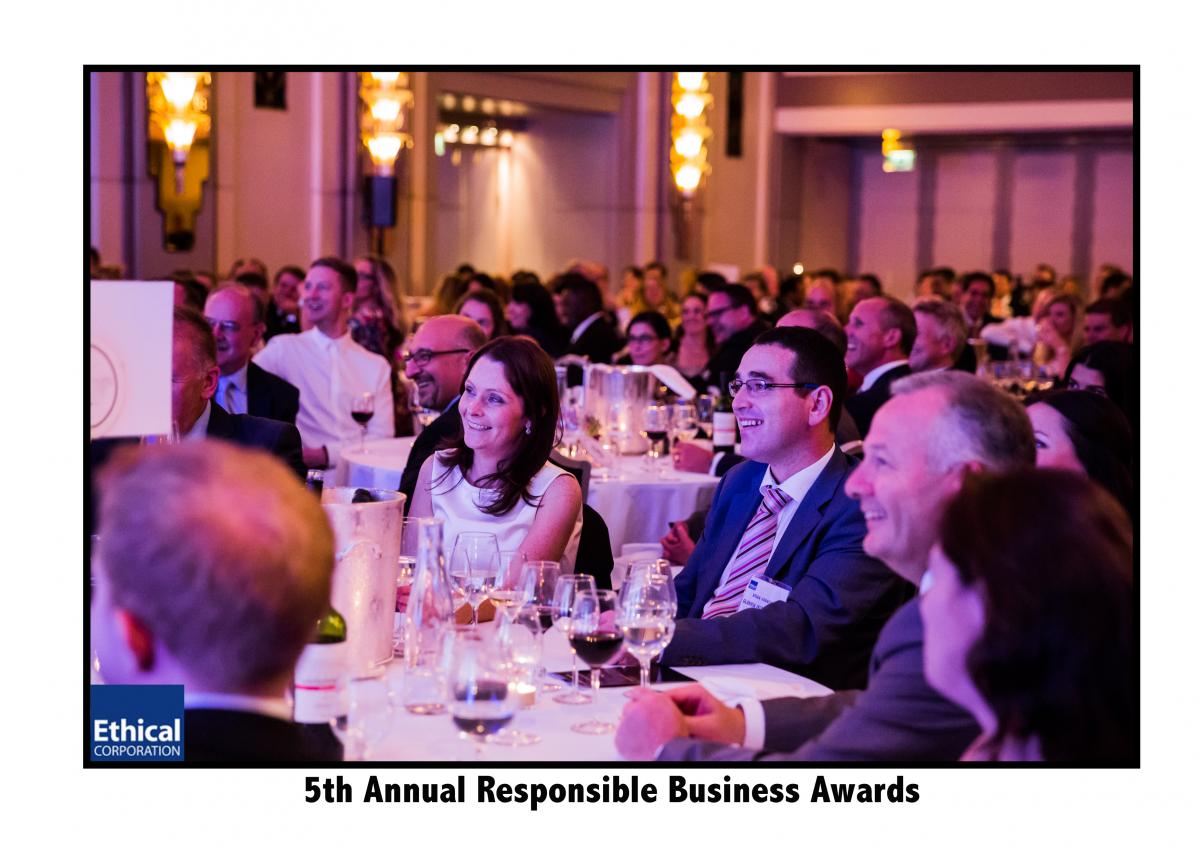
Awards awards ceremony Ethical Awards Responsible Business Awards

